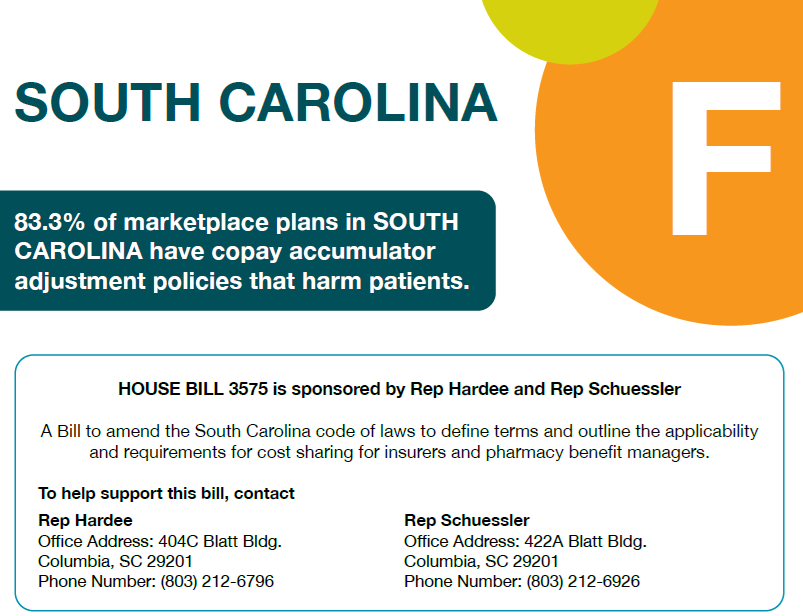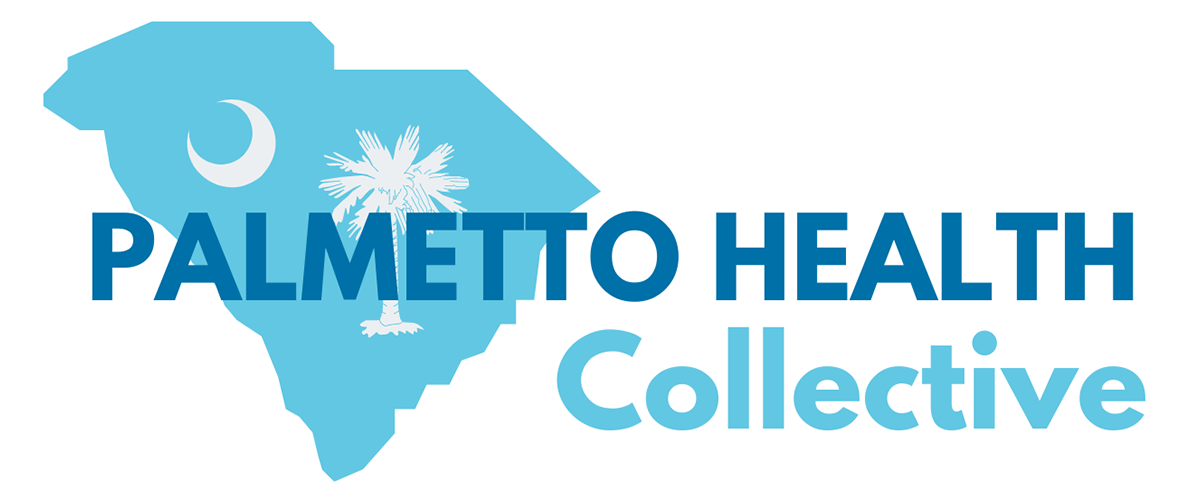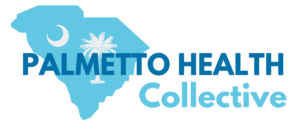South Carolina gets an F because Ambetter from Absolute Total Care, BlueCross BlueShield of South Carolina, Molina Healthcare, InStil Health, and United Healthcare have copay accumulator adjustment policies.
83.3% of marketplace plans in SOUTH CAROLINA have copay accumulator adjustment policies that harm patients.
The Issue
Copay accumulator adjustment policies undermine important patient protections and make it more difficult for people trying to manage a chronic illness to afford medicines they need. Health insurance companies and pharmacy benefit managers (PBMs) pocket copayments made for enrollees using third-party copay assistance but don’t credit the payments to the enrollee’s annual deductible or out-of-pocket limit.
The Solution
State regulators and policymakers need to ensure that patients are protected. The insurers that still include copay diversion policies must end this practice immediately. And South Carolina legislators can protect their constituents with chronic illnesses by joining other states by enacting legislation to protect residents from the harmful practices of copay accumulator and copay maximizer policies.

Such legislation would ensure all those living in South Carolina with state-regulated insurance plans are protected. In addition to South Carolina’s law, a federal rule requires all private health insurance plans, including marketplace and employer-sponsored health plans, to count copay assistance toward patient costsharing limits in most cases. The plans listed above have copay diversion policies contrary to this rule. South Carolina insurance regulators can ensure health insurers and pharmacy benefit managers comply with federal rules.
The HELP Copays Act is a federal bill that would enact these same protections in federal law to protect people living with chronic illness with individual and employer health plans. Senators and Members of Congress from South Carolina should support this patient-centered legislation and urge its enactment.
Read the full report from The AIDS Institute here:
www.theaidsinstitute.org/copays/TAI-copay-report-2025.

